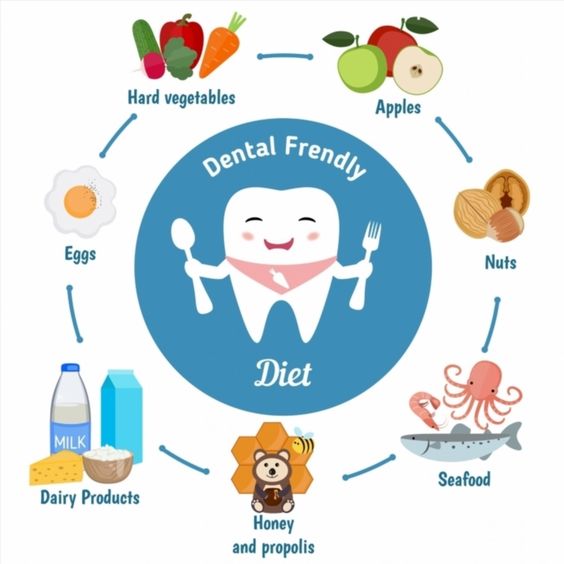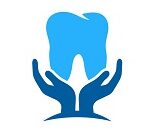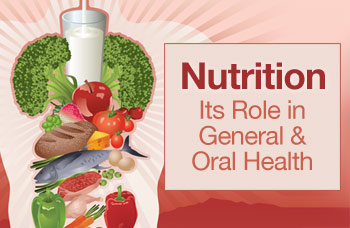The Role of Diet in Maintaining Dental Health
Do you ever wonder if what you eat has an impact on your dental health? You may be surprised to learn that your diet plays a crucial role in maintaining strong and healthy teeth. From the foods you choose to consume to the way you hydrate your body, every decision you make can have an effect on your oral health.
In this discussion, we will explore the connection between diet and dental health, the foods that promote strong teeth, the impact of sugar and acidic foods, the role of a balanced diet in supporting gum health, the effects of nutritional deficiencies, and tips for incorporating tooth-friendly foods into your diet.
By the end, you will have a deeper understanding of how your dietary choices can contribute to maintaining optimal dental health.
The Connection Between Diet and Dental Health
Improving your dental health starts with understanding the connection between your diet and the condition of your teeth. The food and drinks you consume have a direct impact on the health of your teeth and gums. Your diet plays a crucial role in preventing tooth decay, gum disease, and other dental problems.
Sugary and acidic foods and drinks are the main culprits when it comes to dental issues. Consuming too much sugar can lead to the growth of harmful bacteria in your mouth, which produce acids that attack your tooth enamel. This can eventually lead to cavities and tooth decay. Similarly, acidic foods and drinks can erode your tooth enamel over time, making your teeth more vulnerable to decay.
On the other hand, a balanced diet that includes plenty of fruits, vegetables, lean proteins, and dairy products can help maintain your dental health. These foods provide essential nutrients like calcium, phosphorus, and vitamins that strengthen your teeth and gums. Chewing crunchy fruits and vegetables, such as apples and carrots, also stimulates saliva production, which helps wash away food particles and neutralize harmful acids.
Foods That Promote Strong and Healthy Teeth
To maintain strong and healthy teeth, it’s important to make nutrient-rich food choices. These foods provide essential vitamins and minerals that support dental health, such as calcium, vitamin D, and phosphorus.
On the other hand, it’s best to avoid foods that are high in sugar and acids, as they can contribute to tooth decay and erosion.
Nutrient-Rich Food Choices
Eating nutrient-rich foods regularly strengthens and promotes healthy teeth.
It’s important to include foods that are rich in vitamins and minerals, such as calcium, vitamin D, phosphorus, and vitamin C, in your diet.
Calcium is essential for strong teeth and can be found in dairy products like milk, cheese, and yogurt.
Vitamin D helps the body absorb calcium and can be obtained from sources like fatty fish and fortified cereals.
Phosphorus is another mineral that supports tooth health and can be found in foods like lean meats, eggs, and nuts.
Lastly, vitamin C is crucial for gum health and can be found in fruits and vegetables like oranges, strawberries, and bell peppers.
Foods to Avoid
Now let’s shift our focus to the foods that can hinder the strength and health of your teeth.
It’s important to be aware of these foods and avoid them as much as possible to maintain a healthy smile.
First and foremost, sugary foods and drinks are a major culprit. They can lead to tooth decay and cavities because the bacteria in your mouth feed on the sugars, producing harmful acids that attack your tooth enamel.

Additionally, acidic foods and drinks like citrus fruits, tomatoes, and sodas can erode the enamel and make your teeth more prone to sensitivity and decay.
Sticky and chewy foods, such as caramel and gummy candies, can also cause damage by sticking to your teeth and promoting bacterial growth.
Lastly, it’s best to limit your consumption of coffee and red wine, as they can stain your teeth over time.
The Impact of Sugar and Acidic Foods on Dental Health
Consuming sugary and acidic foods can have a significant impact on your dental health. It’s important to be aware of the potential harm these foods can cause to your teeth and take steps to minimize their consumption. Here are three key ways in which sugar and acidic foods can affect your dental health:
– Tooth Decay: Sugar is a primary fuel for harmful bacteria in the mouth. When you consume sugary foods and drinks, these bacteria feed on the sugars and produce acids as a byproduct. These acids can erode the enamel, the protective outer layer of your teeth, leading to tooth decay and cavities.
– Acid Erosion: Acidic foods, such as citrus fruits, sodas, and certain vinegars, can directly erode the enamel of your teeth. The acid in these foods softens the enamel, making it more susceptible to damage. Over time, this can result in tooth sensitivity, discoloration, and even tooth loss.
– Increased Plaque Formation: Acidic foods can also increase the formation of plaque on your teeth. Plaque is a sticky film that contains bacteria and can accumulate on your teeth. When combined with the acids produced by bacteria, plaque can further contribute to tooth decay and gum disease.
To protect your dental health, it’s important to limit your consumption of sugary and acidic foods. Additionally, practicing good oral hygiene habits such as brushing twice a day, flossing daily, and visiting your dentist regularly can help maintain a healthy smile.
How a Balanced Diet Supports Gum Health
Maintaining a balanced diet plays a crucial role in supporting the health of your gums. Your diet directly affects the condition of your oral health, and consuming a variety of nutrient-rich foods is essential for gum health. Adequate intake of vitamins, minerals, and antioxidants promotes the strength and integrity of your gums, helping to prevent gum disease and other oral health issues.
Including foods high in vitamin C, such as citrus fruits, berries, and leafy greens, can contribute to healthy gums. Vitamin C is known for its role in collagen production, which is important for maintaining the structure and health of your gums. Additionally, foods rich in vitamin D, like fatty fish and fortified dairy products, can help reduce inflammation in the gums and support overall gum health.
Consuming foods that are high in omega-3 fatty acids, like fatty fish, flaxseeds, and walnuts, can also benefit your gums. Omega-3 fatty acids have anti-inflammatory properties, which can help reduce gum inflammation and prevent gum disease.
Furthermore, maintaining a balanced diet that’s low in sugary and acidic foods can help prevent gum damage. These types of foods can contribute to the growth of harmful bacteria in the mouth, leading to gum inflammation and disease.
Nutritional Deficiencies and Their Effect on Oral Health
Now let’s talk about the impact of nutritional deficiencies on your oral health.
Your diet plays a crucial role in preventing cavities and maintaining healthy gums. By understanding the nutrients necessary for good oral health, you can make informed choices to support your overall dental well-being.
Diet and Cavities
Are you aware of how nutritional deficiencies can impact your oral health, specifically in relation to the development of cavities? Your diet plays a crucial role in maintaining dental health, and certain nutritional deficiencies can increase your risk of cavities.
Here are three ways in which diet can affect cavity formation:
– Lack of calcium: Not consuming enough calcium can weaken your teeth and make them more susceptible to decay.
– Excessive sugar intake: Consuming excessive amounts of sugar, especially in the form of sugary drinks and snacks, provides fuel for the harmful bacteria in your mouth that produce acids, leading to tooth decay.
– Insufficient vitamin D: Vitamin D helps the body absorb and utilize calcium. Without enough vitamin D, your teeth may become weaker and more prone to cavities.
Nutrients for Healthy Gums
To ensure optimal oral health, it’s important to understand the role of nutritional deficiencies in relation to the overall health of your gums. Your gums play a crucial role in supporting your teeth and maintaining their stability. Nutritional deficiencies can have a significant impact on the health of your gums, making them more susceptible to infections and diseases such as gingivitis and periodontitis.
Vitamin C is essential for the production of collagen, which helps maintain the integrity of your gum tissues. Vitamin D and calcium are also important for gum health, as they contribute to strong teeth and bones. Additionally, omega-3 fatty acids have anti-inflammatory properties that can help reduce gum inflammation.
Incorporating a well-balanced diet rich in these nutrients can help keep your gums healthy and prevent oral health issues.
The Role of Hydration in Maintaining Dental Health
Staying hydrated is essential for maintaining optimal dental health. Proper hydration not only benefits your overall well-being but also plays a crucial role in keeping your teeth and gums healthy.
Here are three reasons why hydration is important for your dental health:
– Saliva production: Drinking an adequate amount of water helps stimulate saliva production. Saliva is essential for maintaining oral health as it helps wash away food particles, neutralize acids, and prevent dry mouth. A dry mouth can lead to dental problems like bad breath, tooth decay, and gum disease.
– pH balance: Hydration helps maintain a balanced pH level in your mouth. When your mouth becomes too acidic, it creates an environment conducive to bacteria growth, which can lead to tooth decay and cavities. Drinking water helps dilute acids and promotes a more alkaline environment, protecting your teeth from acid erosion.
– Nutrient absorption: Hydration improves the absorption of essential nutrients that are vital for dental health. Drinking water aids in the absorption of minerals like calcium and phosphorus, which are necessary for strong teeth and bones.
Remember to drink plenty of water throughout the day to keep yourself hydrated and support your dental health.
Tips for Incorporating Tooth-Friendly Foods Into Your Diet
Incorporate tooth-friendly foods into your diet to support optimal dental health. By making conscious choices about what you eat, you can promote strong teeth and gums. Start by including dairy products like milk, cheese, and yogurt in your daily meals. These foods are rich in calcium, which is essential for maintaining strong teeth. Additionally, they contain casein, a protein that helps to strengthen tooth enamel and prevent tooth decay.
Include plenty of fruits and vegetables in your diet, as they’re packed with essential vitamins and minerals. Crunchy fruits and vegetables like apples, carrots, and celery can also help clean your teeth by stimulating saliva production and removing plaque. Avoid sugary snacks and beverages, as they can contribute to tooth decay. Instead, choose sugar-free alternatives or opt for naturally sweetened foods like fresh fruit.
Don’t forget to drink plenty of water throughout the day. Water helps to rinse away food particles and neutralize harmful acids in your mouth. Lastly, limit your intake of acidic foods and drinks, as they can erode tooth enamel over time.
Incorporating tooth-friendly foods into your diet is a simple and effective way to maintain dental health and ensure a bright smile for years to come.
Frequently Asked Questions
How Often Should I Brush My Teeth to Maintain Dental Health?
How often should you brush your teeth to maintain dental health?
Regular brushing is key to keeping your teeth healthy. Dentists recommend brushing at least twice a day, morning and night, for two minutes each time. This helps remove plaque and prevents cavities and gum disease.
Remember to use a soft-bristled toothbrush and fluoride toothpaste. Don’t forget to replace your toothbrush every three to four months or sooner if the bristles become frayed.
Can Certain Foods Help in Preventing Tooth Decay?
Certain foods can indeed help in preventing tooth decay. By consuming a balanced diet that includes plenty of fruits, vegetables, and dairy products, you can provide your teeth with essential nutrients.
Foods rich in calcium and phosphorus, such as cheese and nuts, can strengthen tooth enamel. Additionally, crunchy fruits and vegetables like apples and carrots can help clean your teeth and stimulate saliva production, which aids in neutralizing acids and preventing cavities.
Are There Any Specific Vitamins or Minerals That Are Beneficial for Dental Health?
These include:
– Calcium: Calcium is essential for strong teeth and bones. It helps to build and maintain the enamel, the outer layer of your teeth, which protects against decay. Good sources of calcium include dairy products, leafy greens, and fortified foods.
– Vitamin D: Vitamin D is important for calcium absorption and helps to promote healthy teeth and bones. Your body can produce vitamin D when your skin is exposed to sunlight, and it can also be found in fatty fish, egg yolks, and fortified foods.
– Vitamin C: Vitamin C is necessary for the production of collagen, a protein that helps to strengthen gums and support the connective tissues in your mouth. Citrus fruits, berries, and vegetables like broccoli and peppers are rich in vitamin C.
– Vitamin A: Vitamin A is important for the development and maintenance of healthy teeth and gums. It helps to produce saliva, which is essential for washing away bacteria and food particles. Foods like sweet potatoes, carrots, and spinach are high in vitamin A.
– Phosphorus: Phosphorus works together with calcium to build and repair tooth enamel. It can be found in foods like meat, fish, poultry, dairy products, and legumes.
In addition to a balanced diet, it’s also important to practice good oral hygiene, such as brushing twice a day, flossing regularly, and visiting your dentist for check-ups and cleanings.
What Are the Common Signs and Symptoms of Nutritional Deficiencies That Can Affect Oral Health?
Common signs and symptoms of nutritional deficiencies that can affect your oral health include tooth decay, gum disease, and dry mouth. These conditions may be caused by a lack of essential vitamins and minerals in your diet.
If you notice cavities, bleeding gums, or a persistent dryness in your mouth, it could be a sign that you need to adjust your diet to incorporate more nutrients that promote dental health.
Are There Any Natural Remedies or Dietary Changes That Can Help With Gum Disease?
There are indeed natural remedies and dietary changes that can help with gum disease.
One option is to consume more fruits and vegetables, as they’re rich in vitamins and minerals that promote gum health.
Additionally, incorporating more omega-3 fatty acids into your diet, such as through fatty fish or flaxseeds, can reduce inflammation in the gums.
Lastly, drinking green tea and using aloe vera gel can also provide relief from gum disease symptoms.
Conclusion
In conclusion, maintaining a healthy diet is essential for maintaining good dental health. Consuming foods that promote strong teeth and gums, while avoiding sugary and acidic foods, can greatly improve oral health.
Additionally, staying hydrated and ensuring a balanced diet can prevent nutritional deficiencies that can negatively impact oral health.</p official site >
By making small changes to incorporate tooth-friendly foods into your diet, you can take proactive steps towards maintaining a healthy smile.

Welcome to my website! I am Patrick Oxenham, a dedicated and passionate Pediatric Dentist with years of experience in providing comprehensive dental care for children. I am thrilled to share my knowledge and expertise in smile restoration methods, aesthetic dentistry updates, and gum health and grafting with you.

